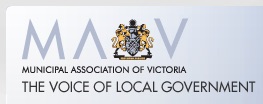The Victorian Government’s plan to hand responsibility for property valuations to the Valuer General’s office has met with disapproval from the Municipal Association of Victoria (MAV).
Valuations will increase from two-yearly to annual, bringing them into line with land tax payments.
Councils are currently responsible for property valuations in Victoria at a cost of $20 million every second year.
MAV President, Councillor Mary Lalios, said there was no consultation with councils before the plan was announced.
“Centralising valuations within the Valuer-General’s office will have a range of serious impacts that don’t seem to have been considered by the State Government.
“Probably one of the most concerning impacts of the proposed reforms is the potential job losses for councils that currently employ qualified valuers.
“The lack of information coming from the State Government means councils can’t properly consult their valuations staff about the future – because they simply don’t know the details of the government’s plan. This is extremely unfair to council staff and their families.
“Councils have told us of a long list of other unintended impacts, including additional administration costs to upload data annually, incompatible software systems, lost revenue from the sale of valuation data, payout of existing contracts, higher prices to undertake council asset valuations – and the list goes on.
“Under rate capping councils are also more reliant on frequent supplementary valuations, particularly in areas undergoing development or growth.
“It is unlikely that the different supplementary valuation needs of each council could be met by the Valuer-General at a reasonable price, which could create a lag in council revenue.”
Earlier this month the MAV State Council supported a call for small rural shires to move to a revaluation cycle every four.
“Small rural shires have limited changes in property valuations, and moving to four-yearly valuations would save rural councils the equivalent of a 1 to 2 per cent rate increase.
“Parliament should halt these reforms until the consequences are clearly understood and suitable solutions are identified to minimise the impacts facing communities,” she said.








